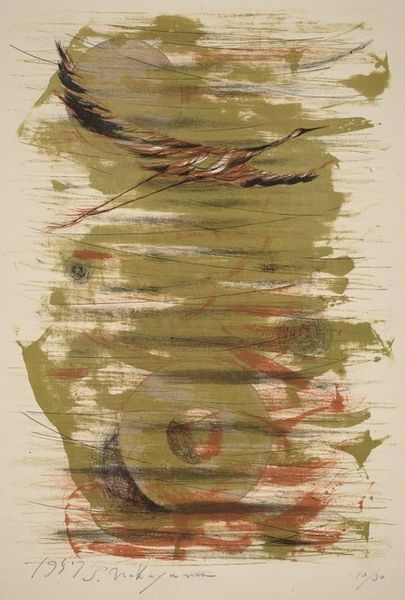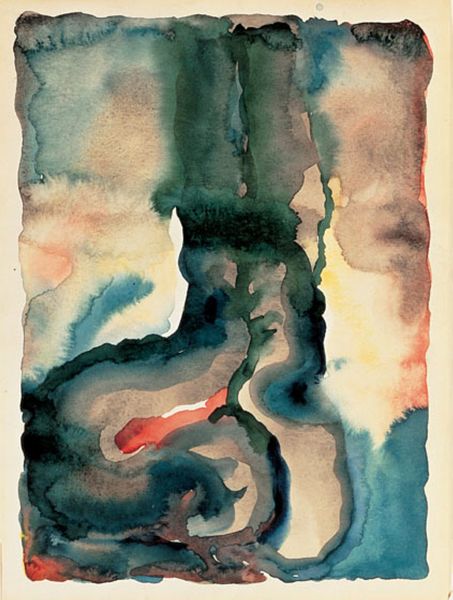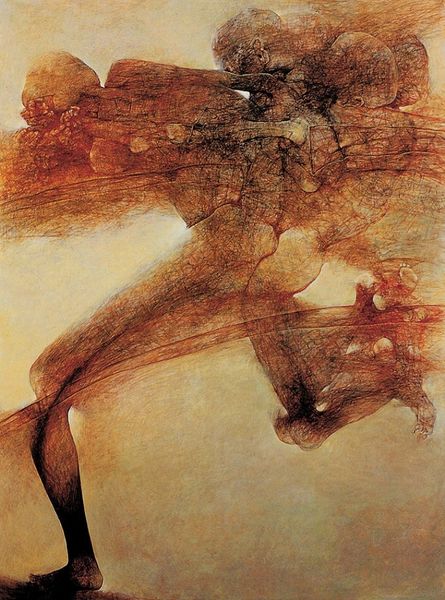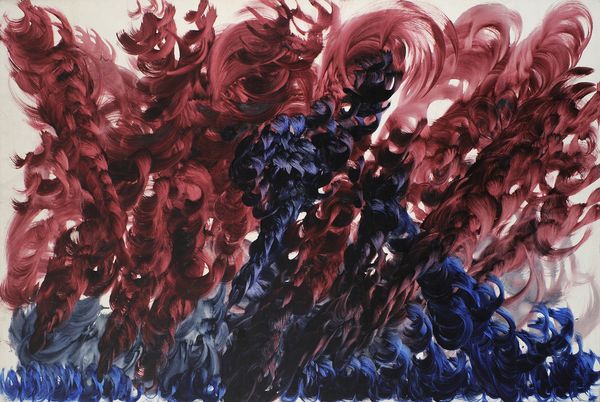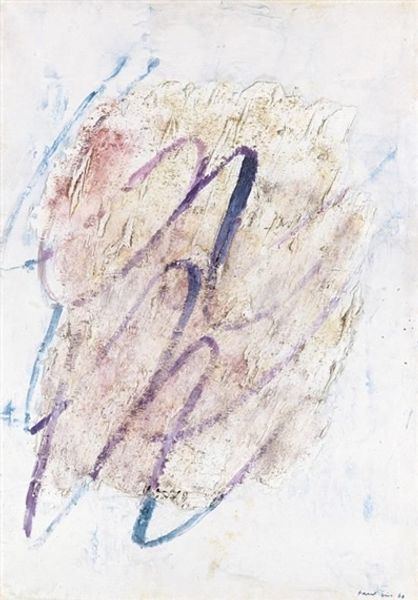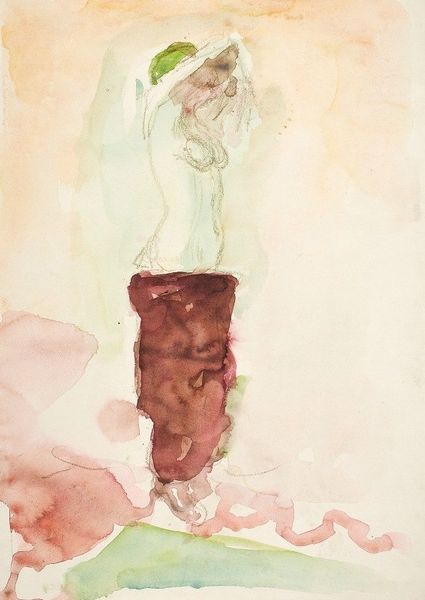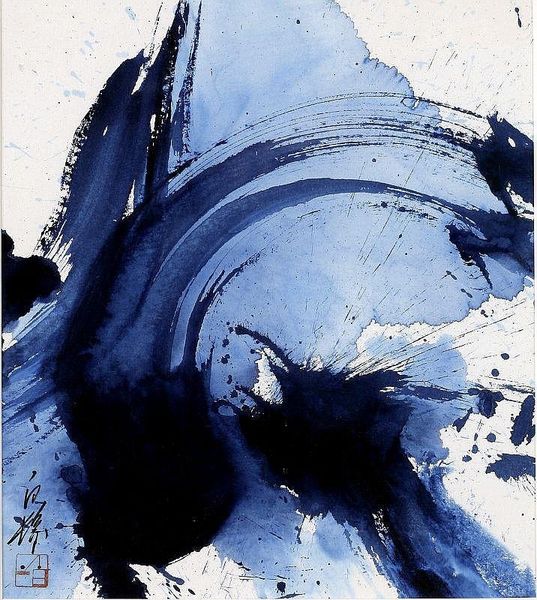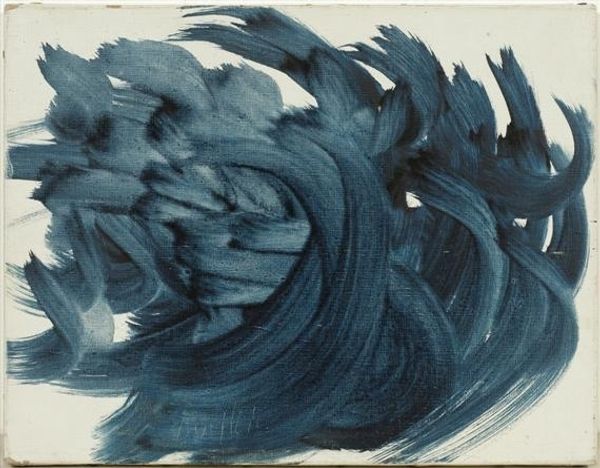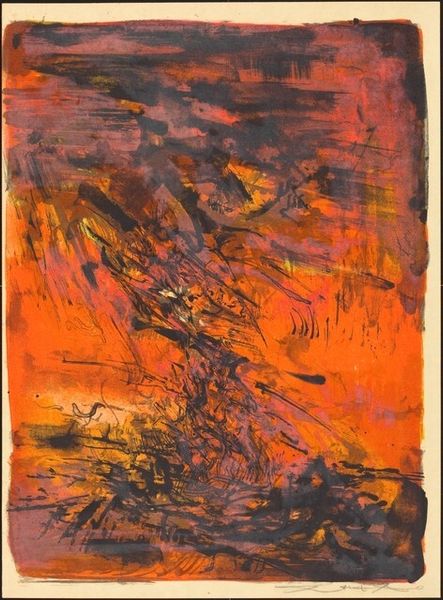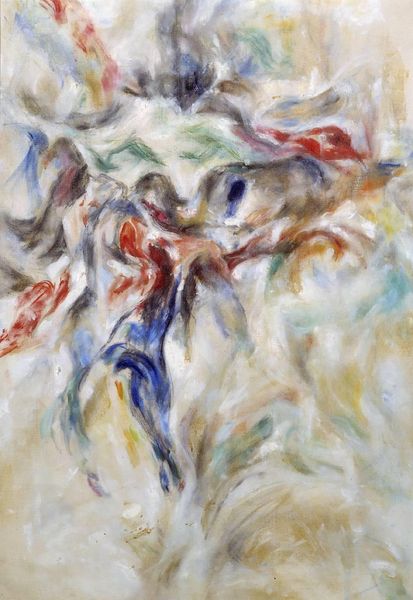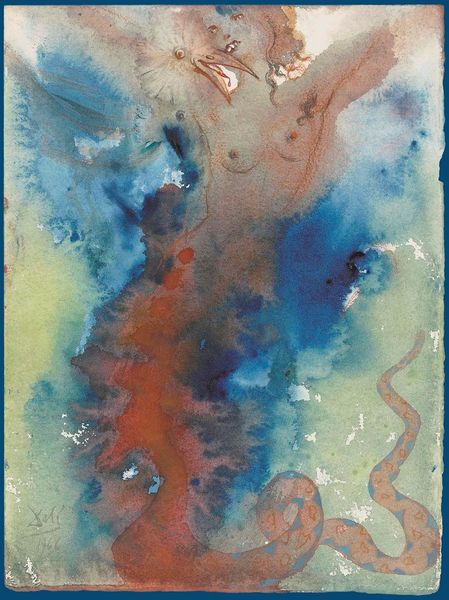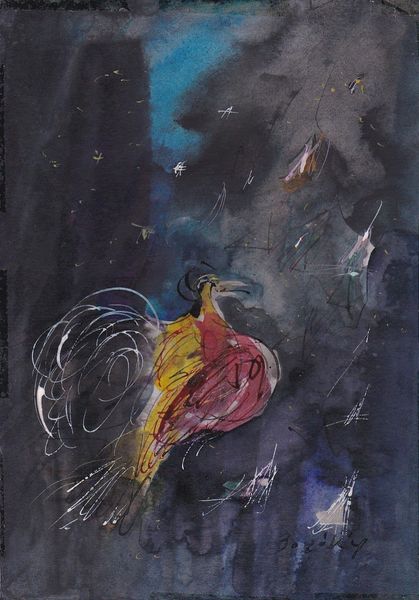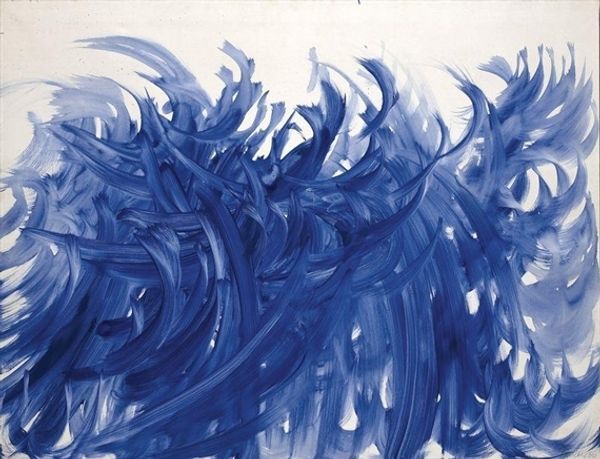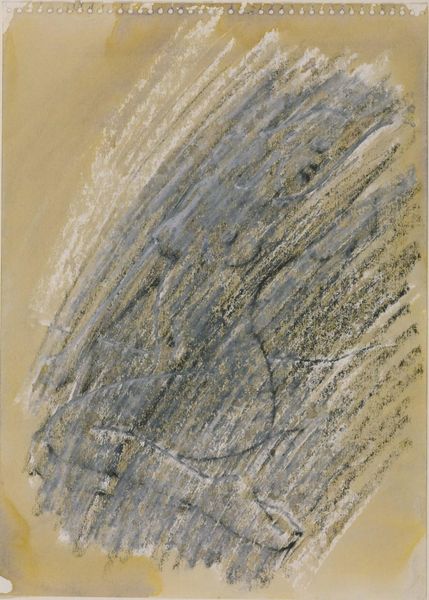
watercolor
#
abstract-expressionism
#
abstract expressionism
#
form
#
watercolor
#
geometric
#
abstraction
#
line
#
abstract art
Copyright: Jean Rene Bazaine,Fair Use
Editor: Oh, wow. This watercolor has such a frantic energy about it. It feels almost like a storm trapped inside a teacup. I'm both drawn in and a little overwhelmed. What do you make of it? Curator: We're looking at Jean Rene Bazaine’s “Composition Abstraite” from 1966. Bazaine, as we know, positioned himself against rigid abstraction. Considering it through the lens of post-war anxiety and artistic freedom, do you think the chaos you perceive could be interpreted as a reflection of broader societal uncertainties? Editor: Possibly! Though to me, it first reads as playful and less an outward depiction of, you know, anything 'heavy.' The colors, that ruby red contrasted with those pale, almost fleeting yellows and blues—they dance together despite the tempestuous brushstrokes. Curator: That dance between colors is really compelling. We could see this in light of mid-century anxieties surrounding artistic purpose in Europe—specifically the rejection of older ideologies in favor of a freer engagement with materiality. It invites conversations about rejecting imposed structures, both on a canvas and within cultural contexts. Editor: Okay, that pulls it into sharper focus. It is almost as if Bazaine wanted to give form to shapelessness or even free line from the page altogether! He’s like, "Line, go explore, be free!” Curator: Precisely. Looking at his contemporaries and the historical move towards abstraction and away from prescribed, more conventional representation—a lot of artists asked similar questions surrounding materiality. This almost becomes like an existential statement about what constitutes 'art' when traditional forms are being actively questioned. Editor: I guess what grabs me most isn’t some heavy, historical debate so much as the raw feeling of a quick, expressive gesture; like a composer conducting at full speed but without any formal restrictions! Thanks, that makes it even more lively. Curator: Seeing it in that light—through gestures—broadens our understanding. Hopefully our listeners can appreciate its nuances now, as well. Editor: Yes! So much for our listeners to mull on, right? A fleeting frenzy in watercolor that mirrors freedom. Pretty groovy, right?
Comments
No comments
Be the first to comment and join the conversation on the ultimate creative platform.
